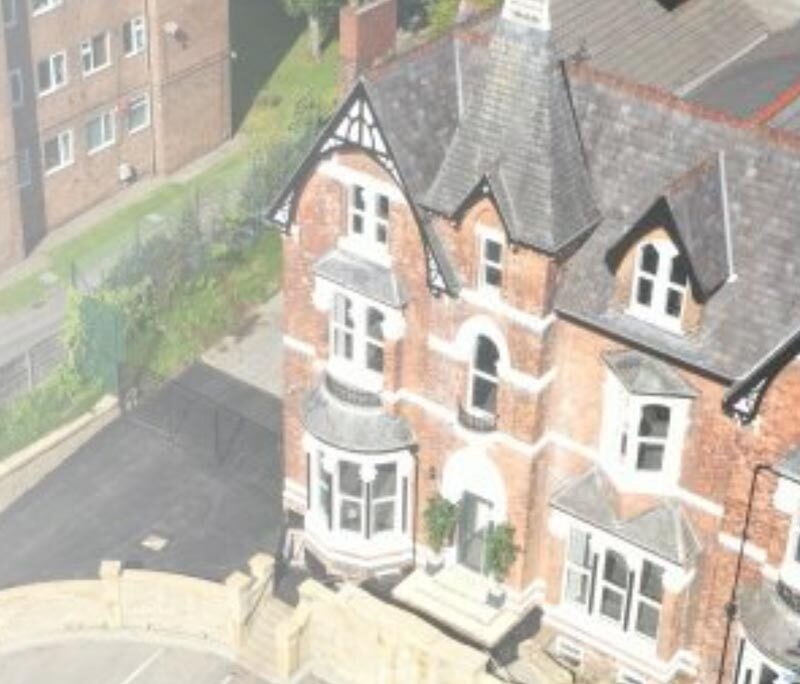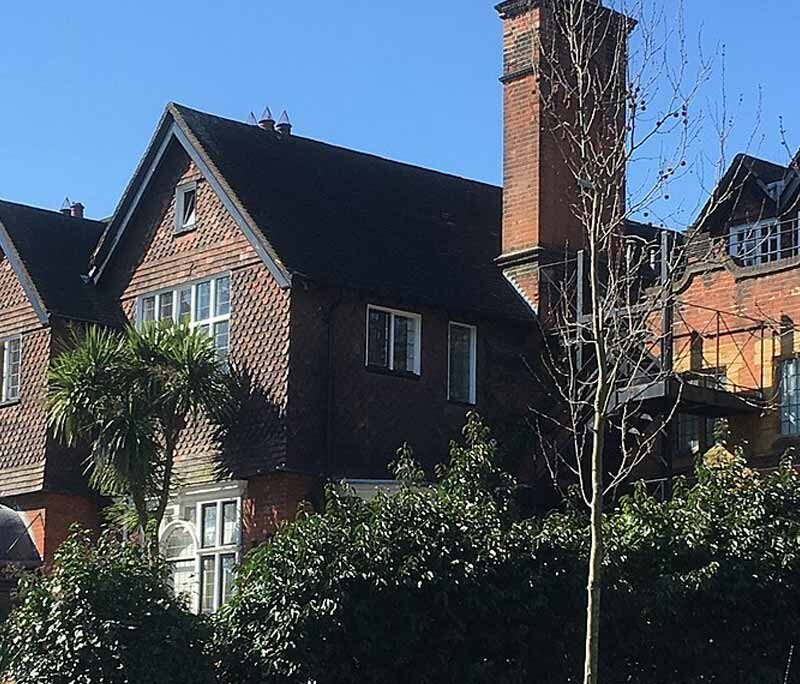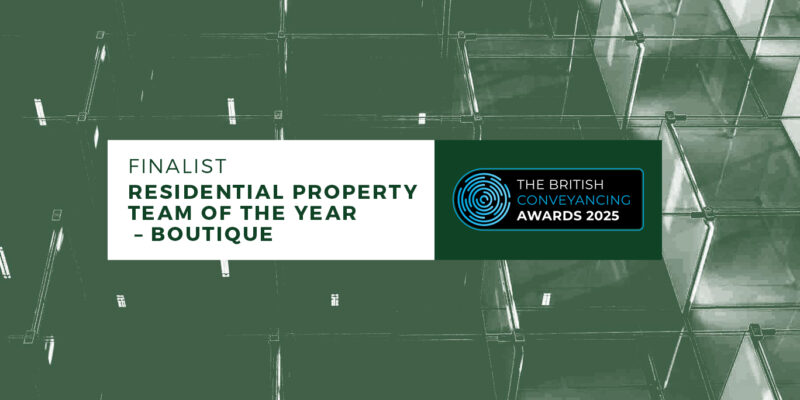Our Property team can help you with all aspects of property law. Our lease extension solicitors have years of experience working on extending leaseholds for leaseholders.
Contact UsManchester 0161 832 2500 | London City 0204 505 8080 | London Finchley 020 8349 0321
Secure PaymentRequest a call back
Lease Extensions
With assistance from a lease extension solicitor, you’ll have a better chance of fair negotiations and securing favourable terms when the time comes to extend your lease on a property. BBS Law can ensure that when you enter discussions with your landlord to lengthen the term of a lease, you remain fully aware of your rights, as well as the stipulations and nuances of the resulting agreement with your landlord.
Overall, having a dedicated firm of solicitors on your side to handle lease extensions will help protect your best interests. A landlord will typically have legal representation when carrying out the process, so it’s best if leaseholders, too, have such representation. This will ensure that the agreement is fair and that both parties are well-protected.
To make an appointment to discuss any aspect of Property Law please email or phone 020 8349 0321.
Property Partners
Frequently Asked Questions
What are Leaseholds?
There are two main types of property in England and Wales: freehold and leasehold. A freeholder owns the entire property – the land and any building that stands on it, as well as up to 152 metres of the airspace above the property. Leaseholders, meanwhile, do not own land and pay the freeholder ground rent.
Lease agreements vary in duration. Some can be valid for decades, or even centuries. In the past, the typical length of a lease was 99 years, though 125 years has become the norm in recent years. Some leases can last as long as 999 years. One important point to note is that it’s generally thought unwise to enter into any lease agreement that only has a remaining term of 80 years or less to run.
Leases shorter than this can pose a number of problems, not least of which will be the complications that arise if you are taking out a mortgage on, or remortgaging, the property. You may also find it difficult to sell a property on which the lease has fewer than 80 years to run. Additionally, it tends to cost more to extend a lease of 80 years or less.
Other common issues that arise for leaseholders include rising ground rents. The Competition and Markets Authority (CMA) has found strong evidence that leaseholders are often taken advantage of and have been known to sign contracts with unfair terms. One example is leases which include a clause stating that ground rents will double every ten years or less.
Contracts that include rising ground rents can not only make it difficult for leaseholders to keep the property but can also prevent a sale of the property. Other issues include leaseholders being misled about the costs of converting leasehold property into a freehold one. Some leaseholders are even unaware of the differences between a freehold and a leasehold from the outset and unwittingly sign up for agreements that are ultimately disadvantageous to them.
Cases like these illustrate the importance of hiring solicitors specialising in lease extensions. With expert legal advice from the outset, you can ensure that you do not get trapped in an unfair contract.
Extending a Lease
When a lease ends, the property reverts back to the landlord or freeholder. At this stage, this means that landlords are free to begin a lease with another party, and the original leaseholder will lose any rights and responsibilities they had to the property under the terms of the original lease. However, there is always the option for leaseholders to apply to extend the length of the lease if desired, and this can be done at almost any point during their occupancy of the property.
Extending a lease essentially means adding more years to the lease agreement. This can be beneficial to leaseholders in several ways.
If, for example, there are fewer than 80 years left on your lease, adding more years to it can increase the value of the property. A longer lease period, in turn, will make it easier for you to sell or re-mortgage the property.
Extending a lease can, therefore, offer both attractive and practical benefits to the leaseholder. But are you entitled to request a lease extension? The answer is yes, provided you have owned the property as a leaseholder for at least two years, and the terms of the existing lease when granted were longer than 21 years.
Once you have been established as a qualified leaseholder under rights granted by the Leasehold Reform Housing and Urban Development Act 1993, you can extend your lease by 90 years, in addition to the number of years still remaining on the existing lease. If, for example, there are 60 years left on your lease, the extension means that the new lease will run for 150 years. What’s more, under that Act, the whole of the lease term must be at a peppercorn (i.e. minimal or no) rent.
Every case is different, so it’s strongly recommended that you take expert legal advice on your own circumstances. If the length of your lease has dropped below 90 years and is getting close to 80, then now is the time to start the lease extension process. A lease with fewer than 80 years left, as noted above, tends to be more expensive to extend. What’s more, if the lease is extended once it has fewer than 80 years to run, the freeholder becomes entitled to half of any increased value of the property.
Moreover, once a lease drops below 60 years, securing a mortgage can be next to impossible.
In return for the lease extension on such favourable terms to the tenant, the landlord is entitled to a “premium”, which is essentially a lump sum of money. There’s a formula is set out in the Act named above, which is a guide to calculating the size of this premium, but the exact figure will depend on negotiations with your landlord. However, these premiums typically reach upwards of £5,000.
The Basics Of The Lease Extension Process
The process of extending a lease can be quite straightforward, though there is a long list of things that you’ll have to do and watch out for. Once you have established that you are qualified to extend your lease, the next thing is to ensure you are able to cover the costs of doing so. You’ll need to hire a valuer and a solicitor, so your calculations should include valuers and lease extension solicitors’ costs as well.
At BBS Law, we can offer you expert legal advice at competitive prices, while ensuring you pay no more than you should for extending the lease on your property.
Valuers and leasehold extension solicitors will serve as your advisers during the lease extension process. Your solicitor in particular will be tasked with gathering all the pertinent documentation and information required. They will not only serve the tenant’s notice on your landlord but also assist you throughout the legal process of extending your lease.
Once your advisers are in place, you are now ready to proceed to the next steps. This includes securing a valuation of the property, which involves assessing the premium you will pay to your landlord. The process of extending a lease can be lengthy and drawn-out, and it is likely that a lot of this time will be spent in negotiation with your landlord on the terms of the new lease.
Your landlord will then have to serve you with a counter-notice. Once this is done, you or your landlord will have between two and six months to apply to the tribunal for an independent decision. As an example of the additional costs that you may be required to pay during the process, the tribunal’s application fee is £100, while the hearing fee is £200; so it is well worth factoring these into your budget, along with your lease extension solicitors fees.
After 28 days, the tribunal’s decision on the matter will become final. You may, if the tribunal allows, have a right of appeal to the Upper Tribunal (Lands Chamber), but if not, then you and your landlord then have two months to enter into a new lease.
This is only a very broad-brush outline of the way the procedure can run. There are many complexities and additional steps that your solicitor may recommend along the way. It’s also possible that you and your landlord could enter negotiations to extend the lease without recourse to the formal process, though this often leaves you at a disadvantage.
That’s because the landlord is free to try and set their own terms, such as increasing the ground rent or refusing to extend the lease altogether. Either way, it is critical you obtain the best legal advice available.
BBS Law can find the right solicitor for your lease extension needs, ensuring that you’ll have proper representation during the entire process. Because leaseholders can be in a particularly vulnerable position, it’s essential that you invest in protecting yourself and your interests.
Our firm has decades of experience in handling various legal matters, including leaseholds. If you need a solicitor for a lease extension, you can call us on 020 8349 0321 or email us here.
3 Tips for Lease Extentions
- Be mindful of the number of years left on your lease. Once the lease’s duration drops below 80 years, you can expect to pay a lot more for an extension.
- Look for leasehold properties of at least 83 years when buying. Since you can’t extend your lease until you’ve owned the property for at least two years, this should give you ample time to plan for an extension.
- Know your rights as a leaseholder. Doing so can prove to be advantageous. Remember – you have the right to extend a lease by 90 years, and for a reasonable market price. Not only that, but you also have the right to buy a proportion of the freehold, provided that certain conditions are met.
Your Rights And Options For Leasehold Properties
The leaseholder can be considered the owner of the home for the period covered by their lease, although this period can range from several decades to hundreds of years.
Leaseholders can typically extend leases for 90 years on the current terms. However, the leaseholder and the freeholder can negotiate and agree on a much longer extension, as guided by law firms for extension of tenancy.
A certain sum must be paid for a lease extension. How much this will depend on different variables, like the overall value of the property. However, it’s safe to assume that you will be paying thousands for the service.
How long does it take to Extend a Lease Extension?
It can take a lengthy period to extend the term of a leasehold interest. The process is almost certain to be more drawn out if you do not seek help from experienced leasehold extension solicitors in the first place.
On average, the entire process takes around 11 months in total to complete. The earlier in the lease you start this process – under the careful guidance of specialists for a continuation of leasehold – the less you will have to pay overall. This is because the more time passes, the less valuable your leasehold interest will be.
Below are the two criteria to be met if you are considered eligible for lease extension:
- Ownership of at least two years for the leasehold property
- A term of 21 years or more on the original lease
The following criteria will disqualify you from eligibility to extend your lease:
- The lease is commercial and not residential in nature
- The freeholder is registered as a charitable housing trust
Lease Extensions For Joint Ownerships
If you have joint ownership of the freehold with other property owners, then getting a lease extension should be a relatively smooth process. With the help of counsels for term extension, a group of leaseholders usually aim to secure a longer lease as soon as they acquire the freehold property.
Of course, this needs only be if the length of the lease is short enough to be an issue. In these cases, the only costs involved in extending the lease are the fees for lease specialist solicitors. Depending on the extent to which you wish to change the original lease agreement, the fees for this process may not be excessive.
Do you need a solicitor for a lease extension?
Regardless of your claim to land or property, it’s highly advisable to secure expertise from lease extension solicitors in London or elsewhere. The process becomes even more complex, and potentially more expensive if there are fewer than 80 years to run on the lease, so again, proper representation is vital.
Are freeholders obliged to extend leases?
This depends on how many years are left on the lease and the length of the tenant’s occupation of the property. If the tenants have been on the property for less than two years, then the landlord has the right to refuse a lease extension.
It is still possible to negotiate for a lease extension, but this usually means you have to pay a higher value. The services of a lease extension solicitor are essential to aid in the legal process.
How do you extend your leasehold in the UK?
The most common way of extending one’s leasehold in the UK is by asking the landlord to extend the effectiveness of the lease title. You can do this at any time by seeking assistance from firms for the prolongation of rent.
If you qualify and are successful in your request, you can typically extend your lease by 90 years.
How much do solicitors charge to extend a lease?
Our fees for a voluntary lease extension (which includes acting for your lender) are £1,750 plus VAT. For statutory lease extensions, our fees range from £2,250-£2,500 plus VAT
Take note that the cost for the negotiation and conveyancing of a lease extension may differ depending on the complexity of the case and the rates of the chosen lawyers for the extension of the property contract.
Please note all VAT is charged at the prevailing rate of 20%
How much does it cost to extend a lease in the UK?
The typical cost of adding 90 years to a lease can vary dramatically depending on a range of factors, including how long the initial lease has left to run. Based on data from the Leasehold Advisory Service, the extension cost for a flat valued at £200,000 with £200 annual ground rent could be anything between £7,500 on a property with a 95-year lease in place to £26,500 for a property with only 60 years left on the lease (costs include professional fees).
How long does it take to get a lease extension on a flat?
It can take anything between three months and a full year to secure a lease extension on a flat, but the overall timescales can be reduced if you choose professional help from skilled valuers and experienced lease extension solicitors and lawyers.
What is the difference between lease renewal and lease extension?
In essence, lease renewal is a brand-new lease agreement, while a lease extension simply extends the terms of the original one.
However, both are similar in that they commit the lease’s parties to continue the landlord-tenant relationship beyond the termination of the original term of the agreement.
When should I extend my leasehold?
Practically speaking, if the lease has fewer than 90 years to run, you should aim to extend it. Properties with shorter leases are considered less valuable assets than ones with longer leases. If your lease is below 80 years, the process can become more complex and expensive, though not impossible, so aim to negotiate an extension before that if possible.
What is the difference between a formal and informal lease extension?
The difference between a formal and an informal lease extension is that the former will see your lease extended by 90 years, whereas the latter will have the lease extended for a much shorter period (around 20 years, for instance).
While an informal extension may seem to be more cost-effective at first, leaseholders will have to pay for the same process in a few years’ time. With that in mind, it may end up costing more over the longer term.
Our Property Partners
We take the time to get to know our clients and their businesses, and we work collaboratively with them to achieve their goals.
Meet Our TeamsFor proactive, bespoke, commercial solutions, contact us to discuss your needs.
Contact UsRequest a call back

I just want to thank you Tanaaz and Robert for enduring with our property travails for so many years with such professionalism and good sense.
Alan and Samanthi


We had a great experience working with Wale and Robert. Buying our flat went super smoothly and dealt with in courteous and professional way.
Yotam


After appointing BBS I was introduced to Kelly and Safiyah who would be looking after my property sale. I was impressed with them every step of the way, they kept me informed, avoided some potential issues and were thoroughly professional. What I like the most was the personable way they dealt with the matter, very attentive and always on hand to move things forward. A real pleasure to deal with thank you both.
Sean


Avi, Safiyah & Kelly have dealt with a number of transactions for me over the past few years. Their attention to detail is incredible. They are a hard working team who will ensure you get the deal done without any fuss. Emails get replied to, matters get dealt with swiftly and i was kept in the loop the whole time. If you would like to get the deal done in good time and with professionalism then look no further! I would highly recommend them and look forward to doing more business with them all in the near future.
Josh


We are delighted to be working with BBS Law on our Bridging Loans. Avi Barr and his team provide a highly efficient service which is appreciated by us and our borrowers. Whether we are working on single buy to let properties or more complex loan scenarios we are always confident of the BBS team's ability to deliver a result focussed on our requirements and objectives.
Anthony Bodenstein, Founder & Managing Partner of Whitehall Capital

Property Case Studies
Strategic Freehold Purchase of Multi-Unit Residential Property
Overview BBS Law has successfully represented a private property investor in the acquisition of a substantial freehold residential property comprising 45 flats. This complex transaction showcased our expertise in property law, strategic deal structuring, and efficient execution under tight deadlines….
BBS Law Advises Work Avenue on New Manchester Workspace
BBS Law is proud to announce its role in advising Work Avenue, a leading provider of business support and shared workspaces, on the lease negotiation for their new Manchester location. This expansion marks a significant milestone for Work Avenue as…
The Hoo: A Complex £11m Refinance for a Grade II Listed Property Development
BBS Law, represented by partner Avi Barr and Managing Associate Leona Ho, successfully advised on a complex £11 million refinance deal for ‘The Hoo’, a Grade II listed property in Hampstead’s Belsize Park. The successful refinance will enable the development…















